Does Tulsi Gabbard Have A “Natural Born Citizen” Problem? No, She Doesn’t
Tulsi Gabbard was born in American Samoa, an American territory whose residents are generally not American citizens from birth. However, she is nonetheless a "natural born citizen."
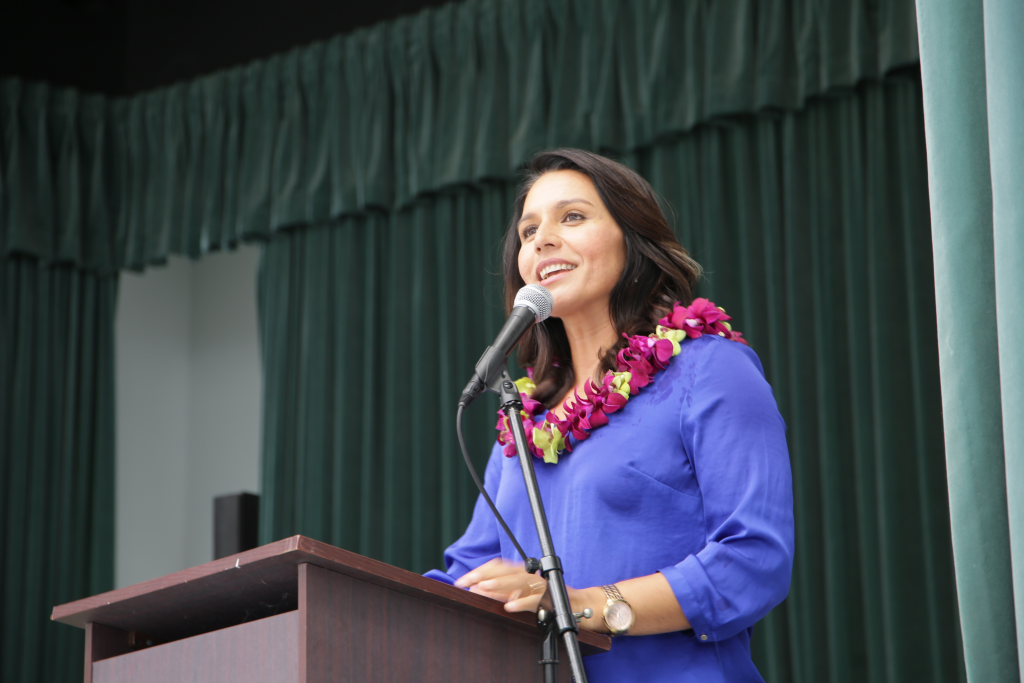
While it isn’t yet an issue that has generally reached the mainstream of public debate, there has been some suggestion that Tulsi Gabbard, who entered the race for the 2020 Democratic Presidential nomination late last week, could have a Presidential eligibility problem:
HONOLULU — Hawaii Rep. Tulsi Gabbard is a US citizen by birth. But as she announces her run for president, there are already signs that she’ll have to deal with the so-called birtherism politics that have frustrated presidential campaigns and others who, like Gabbard, were born in American Samoa — a US territory.
“I have decided to run and will make a formal announcement within the next week,” she said on Friday.
Gabbard was born on American Samoa’s largest island, Tutuila, in 1981 and was raised there until she was 2, when her family moved to Hawaii.
Since becoming a representative in 2013 for Hawaii’s 2nd District and quickly building up a national following, Gabbard has been quietly surrounded by questions about whether being born in a US territory, where residents are not granted birthright citizenship, would impact her one day running for president.
There are three constitutional requirements to be a US president: a person must be over the age of 35, have “been 14 years a resident within the United States,” and they must be a “natural-born citizen.”
A “natural-born citizen” is not explicitly defined by the Constitution, but it is generally thought to mean someone “who was a US citizen from birth, who never had to go through the naturalization process,” according to University of Hawaii political science professor Colin Moore, who spoke to BuzzFeed News.
Gabbard’s mother, Carol Gabbard, was born in Indiana, and her father, Hawaii state Sen. Mike Gabbard, was born in American Samoa to a father who was a US citizen, making Tulsi Gabbard a US citizen from birth under federal law.
Still, there has never been a ruling by the US Supreme Court to determine whether the term “natural-born citizen” includes people born outside the US, since a candidate known to have been born in a territory or abroad has never won the presidency. Moore called this “a gray area.”
(…)
If Gabbard becomes a major presidential candidate, the pattern shows her birthplace will “absolutely” become a political issue for her, said Moore.
In Gabbard’s case, the debate is rooted in the fact that most people born in American Samoa would be disqualified from being president of the United States, since the US does not grant birthright citizenship to those born in the territory — instead they are given the unique status of “non-citizen US nationals.” American Samoans can become US citizens by moving to the states and going through an expedited version of the naturalization process that foreign-born nationals go through to gain US citizenship.
Gabbard’s office did not respond to multiple requests for comment for this story.
American Samoa has been an unincorporated US territory since 1900 and it is politically separate from the islands to the northwest that are part of the Independent State of Samoa. The territory is home to more than 55,000 residents, with more than 180,000 Samoans living in the states.
Because American Samoans are not granted birthright citizenship, they can’t vote for president, serve on a jury, or run for office, and they’re not eligible for certain federal jobs. This is not true for the other US territories — people born in Puerto Rico, the US Virgin Islands, Guam, or the Commonwealth of the Northern Mariana Islands are all citizens at birth.
Some American Samoans want this changed, and a group living in Utah and represented by the nonprofit Equally American has filed a federal lawsuit asking for birthright citizenship. The case was heard in Utah’s federal district court in November and a ruling is pending.
Charles Ala’ilima, who is co-counsel on the case, told BuzzFeed News that American Samoans should be granted birthright citizenship under the 14th Amendment.
“[The] constitution says, ‘We do not recognize different levels of people,'” said Ala’ilima. “Yet here is this territory where you have given a status based upon their place of birth and their race, which is just different than the status given to every other state or territory.”
(…)
Line-Noue Memea Kruse, author of The Pacific Insular Case of American Samoa, told BuzzFeed News that she does not think American Samoans should be given birthright citizenship, because she is concerned the federal government will decide that the US territory’s indigenous political system is unconstitutional.
In American Samoa, Kruse said, there are two unique aspects to governance: the Fa’amatai system and communal lands. The former is a chiefly political system, which governs communal lands that are shared by everyone. Acquiring land in American Samoa is also unique, requiring people to be at least 50% Samoan.
With citizenship, Kruse said, comes the possibility the federal government will decide that the territory’s current way of life is unconstitutional, because it is “an indigenous nobility system” and race exclusory.
Leaving aside the political and constitutional issues behind the lawsuit seeking birthright citizenship for all persons born in American Samoa, it seems fairly clear that Gabbard is indeed a “natural born citizen” as that term is used in the Constitution to determine eligibility to run for and serve as President of the United States. Aside from the largely illegitimate “birther” issues that followed former President Obama as a candidate and, thanks to the likes of Donald Trump, after he became President, the issue of eligibility to be President has come up twice in the last three Presidential cycles. In both cases, an examination of the facts and the law made it clear that the candidates in question were eligible to serve as President. The same is true of Gabbard.
In 2008, and to some extent in 2000 when he was a candidate for the Republican nomination, there were questions about John McCain, who was born in the Panama Canal Zone while his father was stati0ned at the U.S. Naval Base located there. At one point, when McCain entered the race in 2008, his eligibility was challenged in federal district court in New Hampshire, because the Panama Canal Zone was an unincorporated US territory when the candidate was born. Some legal experts reasoned McCain was not a natural-born citizen because he was born outside the US in 1936, a year before a law conferred citizenship on children born to US citizens in the Canal Zone. Others argued that it didn’t matter where he was born because his parents were US citizens — one was even serving the country at the time. At the time, the relevant Federal law stated that a child born to parents at least one of whom were an American citizen and who had resided in the United States for the statutorily designated period of time was considered a U.S. Citizen from birth. Since this applied to both of McCain’s parents, it seemed clear that he was a “natural born citizen.” Notwithstanding this, and in an apparent effort to assist McCain, the Senate passed a nonbinding resolution deeming McCain a natural-born citizen, a resolution that was supported by then Illinois Senator Barack Obama.
Eight years later, similar questions were raised about Senator Ted Cruz when he ran for President in 2016, especially by Donald Trump, who at one point suggested he might sue Cruz over the issue. While Trump never followed through with the threat, there was a lawsuit filed against Cruz by an activist that was dismissed for lack of merit. As most people who followed that race know, Cruz was born in Calgary, Alberta, in 1970 to a mother who was a US citizen born in Delaware and a father who was Cuban, although he is now a US citizen. As with McCain, the law at the time provided that a child was legally a U.S. citizen from birth. in other words, a “natural born citizen,” if at least one of their parents was a citizen at the time of his birth and had resided in the United States for the statutorily set period of time, which was 14 years at the time, a number where it has remained since then. Since Cruz’s mother met those criteria, he was a U.S. citizen from birth and eligible to run for and serve as President.
Roughly around the time that Cruz entered the race in 2015, Neal Kaytal and Paul Clement, two of the best appellate litigators in the country who happen to come from opposite sides of the political aisle, published a piece in the Harvard Law Review that answers this question quite definitively and makes it clear that Cruz is indeed a “natural born citizen” as that term is used in Article II of the Constitution:
While some constitutional issues are truly difficult, with framing-era sources either nonexistent or contradictory, here, the relevant materials clearly indicate that a “natural born Citizen” means a citizen from birth with no need to go through naturalization proceedings. The Supreme Court has long recognized that two particularly useful sources in understanding constitutional terms are British common law. Both confirm that the original meaning of the phrase “natural born Citizen” includes persons born abroad who are citizens from birth based on the citizenship of a parent.
As to the British practice, laws in force in the 1700s recognized that children born outside of the British Empire to subjects of the Crown were subjects themselves and explicitly used “natural born” to encompass such children. These statutes provided that children born abroad to subjects of the British Empire were “natural-born Subjects . . . to all Intents, Constructions, and Purposes whatsoever.” The Framers, of course, would have been intimately familiar with these statutes and the way they used terms like “natural born,” since the statutes were binding law in the colonies before the Revolutionary War. They were also well documented in Blackstone’sCommentaries, a text widely circulated and read by the Framers and routinely invoked in interpreting the Constitution.
No doubt informed by this longstanding tradition, just three years after the drafting of the Constitution, the First Congress established that children born abroad to U.S. citizens were U.S. citizens at birth, and explicitly recognized that such children were “natural born Citizens.” The Naturalization Act of 1790 provided that “the children of citizens of the United States, that may be born beyond sea, or out of the limits of the United States, shall be considered as natural born citizens: Provided, That the right of citizenship shall not descend to persons whose fathers have never been resident in the United States . . . .” The actions and understandings of the First Congress are particularly persuasive because so many of the Framers of the Constitution were also members of the First Congress. That is particularly true in this instance, as eight of the eleven members of the committee that proposed the natural born eligibility requirement to the Convention served in the First Congress and none objected to a definition of “natural born Citizen” that included persons born abroad to citizen parents.
(…)
The original meaning of “natural born Citizen” also comports with what we know of the Framers’ purpose in including this language in the Constitution. The phrase first appeared in the draft Constitution shortly after George Washington received a letter from John Jay, the future first Chief Justice of the United States, suggesting:
[W]hether it would not be wise & seasonable to provide a . . . strong check to the admission of Foreigners into the administration of our national Government; and to declare expressly that the Command in chief of the american [sic] army shall not be given to, nor devolve on, any but a natural born Citizen.
As recounted by Justice Joseph Story in his famous Commentaries on the Constitution, the purpose of the natural born Citizen clause was thus to “cut[] off all chances for ambitious foreigners, who might otherwise be intriguing for the office; and interpose[] a barrier against those corrupt interferences of foreign governments in executive elections.” The Framers did not fear such machinations from those who were U.S. citizens from birth just because of the happenstance of a foreign birthplace. Indeed, John Jay’s own children were born abroad while he served on diplomatic assignments, and it would be absurd to conclude that Jay proposed to exclude his own children, as foreigners of dubious loyalty, from presidential eligibility.
The birthers, on the other hand, have argued that the phrase “natural born citizen” in the Constitution has a specific meaning that requires that both of a person’s parents be citizens of the United States at the time of their birth. It doesn’t actually say that in the Constitution, of course, and there isn’t a single shred of legal authority they can rely on to support their claim. Despite this, they rely upon a definition of “natural born citizen” given by a Swiss legal philosopher named Emmerich de Vattel. The problem is that the edition of the work in which de Vatel developed this definition of the phrase wasn’t translated into English and published outside of Switzerland until ten years after the Constitution was drafted. Therefore, it’s highly unlikely that his work had any influence on the Founders. More significantly, though there is the simple fact that the Constitution and American law clearly recognize only two forms of American citizenship. Either you are a citizen from the time you are born or you become a citizen through the process of naturalization. There is no other class of citizenship, and no special class of citizenship granted by the law to people who happen to have two parents who are U.S. citizens as opposed to just one. Obviously, the term “natural born citizen” as it is used in the Constitution was meant to refer to the first kind of citizen, the person who is a citizen from the time of their birth.
Moreover, it’s worth noting that, under this de Vattel definition, and not counting Obama, the United States has had four Presidents since 1820 who had at least one parent who was not an American citizen at the time of their birth — Andrew Jackson, James Buchanan, Chester Alan Arthur, and Herbert Hoover. At no time did anyone make the argument that any of these men were not “natural born citizens,” so there’s no reason to think that the Founders ever intended to apply this standard to determine eligibility for the Presidency.
To put this more broadly there are essentially three ways to become an American citizen. One method, obviously, is to be born within the territory of the United States. That applies to the vast majority of us but doesn’t apply to Gabbard because, due to the nature of the territorial relationship between the United States and American Samoa, the people born there do not automatically become American citizens at birth. The second is to be an immigrant who applies for, and successfully completes, the process of becoming an American citizen. This would apply to someone born in American Samoa who isn’t otherwise an American citizen, but Gabbard also doesn’t fall into this category. The final method is to become a citizen by virtue of your parent’s citizenship regardless of where you are born. Under American law as it was in 1981 when Gabbard was born, someone became an American citizen at birth if at least one of their parents is an American citizen and that citizen-parent had been a resident of the United States for the statutory period. Based on the available facts, both of Gabbard’s parents were American citizens at the time she was born and at least one of them had resided in the United States for the required period before she was born. Therefore, despite the questions regarding the status of others born in American Samoa, Gabbard is clearly a “natural born citizen” eligible to run, and serve as, President of the United States.

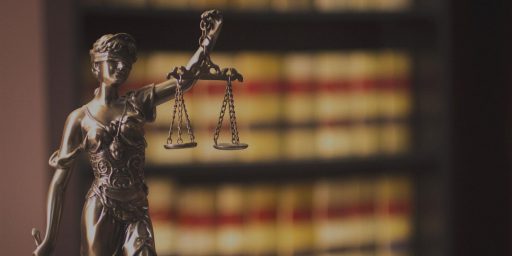
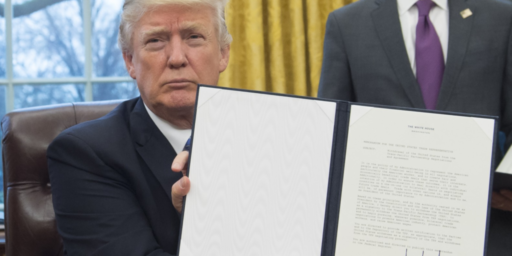
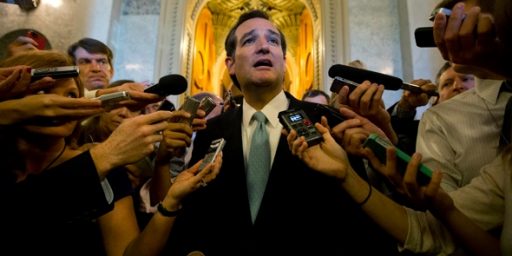

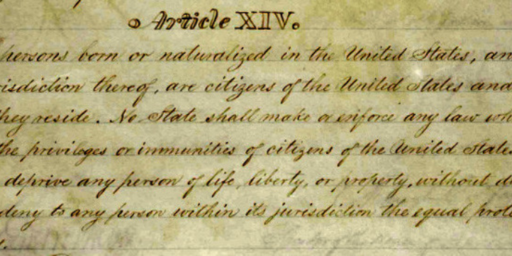
It will never be an issue. She can never survive the Democratic primaries.
I’m surprised no one’s mentioned Barry Goldwater, who was born in Arizona Territory before it became a state.
@Dave Schuler: No, but it won’t stop the Hate Percent of the Democratic Party using surrogates to suggest she’s not an American. They’re whacko as any Republican.
@Dave Schuler:
I would not be surprised to see some of the people who really hate her bring it up.
But I agree she has no chance of winning the nomination.
You cite McCain and Cruz as precedent. This only proves it wouldn’t be a problem for a Republican. This is different. However, what @Dave Schuler: said.
Awww jeez Edith, not this $hit again…
I’d suggest a law defining who qualifies as a “natural born citizen,” but it’s not a good idea. One term with a Republican majority in both houses of Congress, and you’ll wind up with a requirement of a high percentage of Caucasian genes, plus anointment as a Natural Born Citizen by the hand of Jesus Himself.
I’m still stuck on Shakespearean definitions of “natural born.” Was she born naturally, or was she cut from her mother’s womb?
I think it is reasonable to assume that the founding fathers were familiar with Macbeth, and for some inexplicable reason were on Macbeth’s side. Was there any other definition of “natural born” in use at the time?
I also agree that she has no change to win the Dem nomination, which is a shame. All the Senators running like to think of themselves as “badasses.”
But Tulsi Gabbard is the one who’s a major in the army.
@Gustopher: Yes! Anyone born by C Section is ineligible! Deport!
@Kathy:
I’d suggest a constitutional amendment abolishing the silly natural-born clause altogether, but we know that ain’t going to happen, and until it does, we’re stuck with the courts as the ultimate arbiter in what “natural born” means.
(Of course, I’m not even sure I’d want to pursue such an amendment anyway. It is well down the list of things that are wrong with our electoral system, and I’d start with more important matters such as the EC.)
@Kylopod: IIRC there was a lot of talk about an amendment back when the GOPs thought Schwarzenegger was their rising star. Dropped it when he flopped. Won’t come up again unless Derepaska wants to run as an R.
@gVOR08: Yeah, I remember that, and snark aside, it still required a candidate to have been a citizen for at least 20 years.
It would be an interesting alternate-history scenario if that amendment had passed in the early 2000s. I doubt it would have led to President Ah-nold. But it would have meant no birther movement–and probably therefore no President Trump.
@Kylopod:
That’s a really good argument for that particular amendment.
@Gustopher:
What the stork isn’t making deliveries anymore. Must have gone the same way as Howard Johnson’s Friday Night Fish Frys, TWA, Blockbuster Video, and soon to be departed Sears.
gVOR08:
I think there was similar about Michigan Governor Jennifer Granholm (D), born in Canada to Canadian parents about the same time as the Schwartzenegger stuff you were talking about.
I was going to mention the John McCain stuff when I first started reading but see you had it covered. Birtherism applies to both Parties as a political ploy, and starts within their own party.
Love the Shakespeare reference (another dead boring white CIS male, blah, blah; Love the fact I had an education in the Western Classics).
I live in a city with a noticeable Pacific Islander population (I know of a Samoan Methodist church and a Samoan bakery within a 15 minute drive, and the Catholic Church with Samoan services is 8 blocks away) and had forgotten their odd non-citizenship. They are not all huge Football players (cough, the nobility that was mentioned), and seem to keep to themselves (I know folks from Hawai’i, Guam and PI (RP), but no one from Samoa – not in my circles that include other Pacific Islanders). Just an observation.
How’s that?
OT — To the chagrin of insomniacs everywhere, Senator Bob Casey (D-PA) has ruled out running for President this year.
@Kylopod: That’s because Arizona Territory was an incorporated territory, meaning “incorporated into the United States”. As such, anyone born there was born within the US, so there is no controversy.